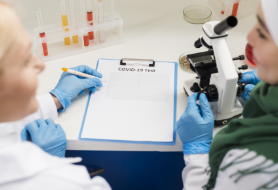Services
Home » Services

Family Medicine
Comprehensive health care for individuals and families of all ages, genders, and health needs.

Immunizations
Protect yourself with vaccines that boost your immune system against infectious diseases safely and effectively.

Pediatrics
Expert medical care tailored for infants, children, and teens up to age 21 to support healthy growth and development.

OB/GYN
Specialized care for women, covering pregnancy, childbirth, and reproductive health with expertise and compassion.

General Dentistry
Comprehensive oral care, from prevention to treatment, ensuring your teeth and mouth stay healthy.

Behavioral Health
Support for mental, emotional, and social well-being, addressing lifestyle and psychological challenges.

STD/HIV/TB Treatment
Advanced care for STDs, HIV, and TB to help manage, treat, and prevent infectious diseases.

Internal Medicine
Specialized prevention, diagnosis, and treatment for complex internal health issues by expert internists.

Physicals
Annual exams and health check-ups tailored to your needs, combining medical history and physical assessment.

Screenings
Early detection tests for conditions like diabetes, hypertension, and more to safeguard your health.

Geriatrics
Focused care for older adults, promoting health, managing chronic conditions, and enhancing quality of life.

Allergy/Asthma
Comprehensive care for allergies and asthma, addressing symptoms and improving your quality of life.

Women's Health
Specialized care addressing unique physical, mental, and social health needs for women of all ages.

Men's Health
Health care tailored to men's physical, mental, and social well-being, focusing on unique needs.

Dermatology
Expert care for skin, hair, and nails, addressing issues like acne, eczema, and skin cancer screenings.

Laboratory
Accurate, timely testing services for diagnostics and health monitoring, supporting personalized care.
SERVICE OVERVIEW
Below, please see more information about our services.

Family Medicine
Family Medicine is comprehensive health care for people of all ages. Family practice is a division of primary care that provides continuing and comprehensive health care for the individual and family across all ages, genders, diseases, and parts of the body. Family medicine aims to provide personal, comprehensive, and continuing care for the individual in the context of the family and the community.

Immunizations
Immunization is the process whereby a person is made immune or resistant to an infectious disease, typically by the administration of a vaccine. Vaccines stimulate the body’s immune system to protect the person against subsequent infection or disease. Immunization triggers an immune response, just as though you had been exposed to a disease naturally. The vaccine contains the same antigens or parts of antigens that cause the disease, but the antigens in vaccines are either killed or greatly weakened. Vaccines work because they trick your body into thinking it is being attacked by the actual disease.

Pediatrics
Pediatrics is the branch of medicine that involves the medical care of infants, children, and adolescents. The American Academy of Pediatrics recommends people be under pediatric care up to the age of 21 (though usually only minors are required to be under pediatric care).

OB/GYN
Obstetrics and gynecology is the medical specialty that encompasses the two subspecialties of obstetrics (covering pregnancy, childbirth, and the postpartum period) and gynecology (covering the health of the female reproductive system – vagina, uterus, ovaries, and breasts).

General Denistry
Dentistry, also known as dental medicine and oral medicine, is a branch of medicine that consists of the study, diagnosis, prevention, and treatment of diseases, disorders, and conditions of the oral cavity, commonly in the dentition but also the oral mucosa, and of adjacent and related structures and tissues, particularly in the maxillofacial (jaw and facial) area. Although primarily associated with teeth among the general public, the field of dentistry or dental medicine is not limited to teeth but includes other aspects of the craniofacial complex including the temporomandibular joint and other supporting, muscular, lymphatic, nervous, vascular, and anatomical structures.

Behavioral Health
Behavioral Health is concerned with the integration of knowledge in the biological, behavioral, psychological, and social sciences relevant to health and illness. Behavioral health is especially relevant today as many health problems are primarily viewed as behavioral in nature, as opposed to medical. For example, smoking, leading a sedentary lifestyle, and alcohol abuse or other substance abuse are all factors in the leading causes of death in modern society.

STD/HIV/STB Treatment
Sexually transmitted infections (STIs), also referred to as sexually transmitted diseases (STDs), are infections that are commonly spread by sexual activity, especially vaginal intercourse, anal sex, and oral sex.
The Human Immunodeficiency Viruses (HIV) are two species of Lentivirus (a subgroup of retrovirus) that infect humans. Over time, they cause acquired immunodeficiency syndrome (AIDS), a condition in which progressive failure of the immune system allows life-threatening opportunistic infections and cancers to thrive.
Tuberculosis (TB) is an infectious disease usually caused by the bacteria Mycobacterium tuberculosis (MTB). It generally affects the lungs but can also affect other parts of the body. Tuberculosis is spread from one person to the next through the air when people who have active TB in their lungs cough, spit, speak, or sneeze.

Internal Medicine
Internal medicine is the medical specialty dealing with the prevention, diagnosis, and treatment of internal diseases. Physicians specializing in internal medicine are called internists. Internists care for hospitalized and ambulatory patients and may play a major role in teaching and research. Of note is that internal medicine and family medicine are often confused as equal.

Physicals
In a physical examination, medical examination, or clinical examination, a medical practitioner examines a patient for any possible medical signs or symptoms of a medical condition. It generally consists of a series of questions about the patient’s medical history followed by an examination based on the reported symptoms. Together, the medical history and the physical examination help to determine a diagnosis and devise a treatment plan. This data then becomes part of the medical record.

Screenings
Screening, in medicine, is a strategy used to look for as-yet-unrecognized conditions or risk markers. This testing can be applied to individuals or a whole population. The people tested may not exhibit any signs or symptoms of a disease, or they might exhibit only one or two symptoms, which by themselves do not indicate a definitive diagnosis.
Screening interventions are designed to identify conditions that could, at some future point, turn into disease, thus enabling earlier intervention and management in the hope of reducing mortality and suffering from a disease. Our available screenings include but are not limited to hypertension, diabetes, behavioral health, etc.

Geriatrics
Geriatrics, or geriatric medicine, is a specialty that focuses on the health of elderly people. It aims to promote health by preventing and treating diseases and disabilities in older adults. There is no set age at which patients may be under the care of a geriatrician, or geriatric physician, a physician who specializes in the care of elderly people. Rather, this decision is determined by the individual patient’s needs and the availability of a specialist.
Prescriptions- A prescription drug (also prescription medication or prescription medicine) is a pharmaceutical drug that legally requires a medical prescription to be dispensed. In contrast, over-the-counter drugs can be obtained without a prescription. The reason for this difference in substance control is the potential scope of misuse, from drug abuse to practicing medicine without a license and sufficient education.

Allergy/Asthma
Allergies, also known as allergic diseases, are several conditions caused by hypersensitivity of the immune system to typically harmless substances in the environment. These diseases include hay fever, food allergies, atopic dermatitis, allergic asthma, and anaphylaxis. Symptoms may include red eyes, an itchy rash, sneezing, a runny nose, shortness of breath, or swelling.

Women's Health
Women’s health refers to the health of women, which differs from that of men in many unique ways. Women’s health is a state of complete physical, mental, and social well-being and not merely the absence of disease or infirmity.

Men's Health
Men’s health refers to a state of complete physical, mental, and social well-being, as experienced by men, and not merely the absence of disease or infirmity. Differences in men’s health compared to women’s can be attributed to biological factors (such as male genitalia or hormones), behavioral factors (men are more likely to make unhealthy or risky choices and less likely to seek medical care), and social factors (e.g. occupations). These often relate to structures such as male genitalia or to conditions caused by hormones specific to, or most notable in, males.

Dermatology
Dermatology is the branch of medicine focused on diagnosing and treating conditions related to the skin, hair, and nails. At St. Thomas East End Medical Center Corporation, our dermatology services address a wide range of concerns, from acne and eczema to skin cancer screenings and cosmetic treatments. Our specialists are dedicated to helping you maintain healthy skin and providing personalized care for all your dermatological needs.

Laboratory
Laboratory- Our laboratory services at St. Thomas East End Medical Center Corporation provide essential testing to help diagnose and monitor a variety of health conditions. From routine blood work and urine tests to more specialized diagnostic exams, our state-of-the-art lab ensures timely, accurate results to support your healthcare needs. Our skilled team works closely with your healthcare provider to offer comprehensive and reliable testing services, all aimed at promoting your overall well-being.

